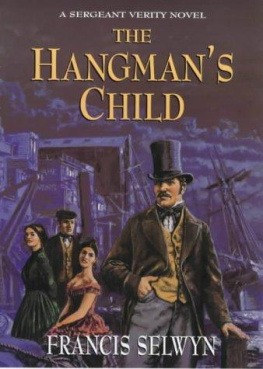ONE
For Selwyn Roweson, the morning the villagers turned on him started the way the night before had ended: He and his father were removing tree stumps from the bit of land they hoped to plant as an additional field next spring. "Because even if you won't be marrying Anora after all," his father had said, "you'll be getting married sometime, and you'll be needing the extra land."
Selwyn was inclined to think his father hoped that pulling and hacking at stubborn tree stumps would be enough to drive Anora from Selwyn's mindwhich just went to show how simple parents could be about certain matters.
"Besides," his father told him, "a wispy little town girl isn't right for farm life. What you need to find yourself is a big, sturdy woman."
"Big?" repeated Selwyn, barely able to spare the breath as he wielded the ax at one of the tree roots, sending wood chips flying onto his clothes and into his hair. "Sturdy?" He himself was of a small buildand, at seventeen years old, not likely to gain much more height or breadth. The last thing he wanted was a wife bigger and stronger than he was. "Are we talking about a wife or a pair of oxen?"
"Well," his father said, as though giving the matter due consideration, "of course, that would be your choice. Oxen are very good at removing tree stumps. On the other hand, their after-dinner conversation is generally mediocre at best, and they can hardly dance at all. Maybe, instead, you could find a girl who's big and sturdy, but not too big and sturdy."
Selwyn laughed, though mostly with relief that the ax blade had finally split the root.
He put down the ax and picked up the shovel.
The day was unseasonably warm, being that time of year when the autumn leaves have fallen but the winter snow has not, and Selwyn's shirt stuck wetly to his back. He paused, straightening, for a moment's rest and to blow his hair out of his eyes.
That was when he saw the villagers approaching.
"Father," he said, never for a moment mistaking their intention to be to help dig up tree stumps, for several carried staffs or clubs, and all looked grim.
The last of the smile faded from his father's face, but his voice was jovial as he called out to the dozen or fifteen men approaching. "What is it? What's wrong? Tell me we're not at war again."
It was a reasonable query, forof all of themonly Selwyn's father had gone away to be in the king's army, which was how he came so late to marrying that he was almost fifty years old with a son of seventeen. The villagers had turned to him before for help with soldiers that had crossed the border, or with bandits raiding on the road to Saint Hilda's, oroncewith two feuding wizards who nearly leveled Orik's tavern trying to settle their differences.
But his father didn't think this was the case; Selwyn could tell the lightness in his voice was forced.
And any lingering doubts were ended when Thorne, who was in the lead, called back, "Put down the shovel, Rowe."
Which was such an odd thing to say no matter why they were here that Selwyn felt a flutter of dread in the pit of his stomach even though Thorne was their neighbor and had farmed the land nearest theirs for longer than Selwyn had been alive.
His father, who before that had had no reason to hold on to his shovel, looked at Thorne and the oncoming crowd appraisingly. He jammed the shovel into the pile of dirt he and Selwyn had dug up from around the latest stump's roots, and rested his arm on top of the handle, where it was still in ready reach.
The villagers stopped, five or six paces away. A shovel's length away.
"Step over here, boy," said Linton, the miller's nephew, though Selwyn didn't yet know the significance of that.
"Stay," Selwyn's father ordered, as though Selwyn had no sense at all.
"We just want to talk to him," Thorne said.
"Fine. Talk," Selwyn's father said. "His hearing's good."
Thorne met his stare for several long moments. Then he said, "Farold's dead. Murdered last night in the mill."
Farold was another of Derian Miller's nephews, Linton's cousin. Selwyn was shocked that someone had been murdered in their quiet community, but not dismayed that it was Farold. Relieved, in fact, that it was Farold and no one else. Pleased, if truth be told, that if it had to happen to someone, it had happened to Farold. But he knew not to let any such thing show on his face. He tried to think nice thoughts only. Farold wasn't all that bad, exactly, he told himself. Farold was better than ... Well, he was better than sitting down on a tack. He was better than breaking a tooth on a peach pit.
His father asked, "What makes you think Selwyn did it?"
So much for nice thoughts. Though, in truth, it was the only reason they could be here, looking the way they looked. How could they think he'd kill someoneeven obnoxious, swaggering Farold? But Thorne was staring right at him, finally addressing him and not his father, asking him, "Did you?"
It took several tries to get his voice to work. "No," he said, amazed that Thornewho had known him all his lifecould even ask with a straight face.
"Well then," Thorne said reasonably.
That couldn't possibly be it, Selwyn knew. They couldn't have marched all this way from Penryth just to turn around and walk back at a single-word declaration of innocence.
"We were all here," Selwyn's father told them. "Last night, you say? We were right here, all four of us, all nightme, the boy, his mother, and his grandmother. We'll all vouch for him."
That caused a shiver down his back, which Selwyn tried to disguise as brushing away a fly. He crossed his arms over his chest defiantly.
"Fine," Thorne said. "Come back to the village, explain everything to Bowden. See if there's anything you know that can possibly help us determine who did kill him."
The faces beyond Thorne didn't look quite so convinced, so reasonable.
"I've just explained to you," his father said. "And as for the rest: Any number of people would be glad to have Farold dead." He looked right at Linton then, which could have been by way of apology for speaking ill of the dead in front of relatives, or it could have been to remind everyone that Linton was one who had to gain from Farold's deathfor now he would be the rich but elderly miller's closest surviving kinsman.
Linton spit on the ground, looking as though he'd prefer to spit at them.
Thorne said, "Look, Rowe, let Selwyn come with us to explain for himself. Bowden is a reasonable man. But his daughter is weeping and carrying on..."
Bowden. That was Anora's father, and it was because of Anora that he was being accused, Selwyn knew. All summer he and Farold had vied for Anora's attention and affection, and in the end Anora had chosen Farold. The two youths had fought, two weeks ago, in the street, in front of everyone. Well, more accurately, Selwyn had tried to fight, and Faroldbigger, taller, strongerhad dumped him unceremoniously into the rubbish heap as though Selwyn were about ten years old, much to the entertainment of the bystanders. So now, apparently, everyone thought he had carried the fight further.
"The girl accuse him?" Selwyn's father asked, for he had never thought much of Anora. Selwyn was shocked at the idea.
"No," Thorne said. "I told you, it happened at night: Nobody saw anything. Derian didn't hear anything, what with the noise of the waterwheel and being half deaf as he is. It looks like the murderer climbed in through the window. Let the boy come and talk, Rowe. Settle this now. Do you think you're helping, acting this way?"
Finallyand Selwyn felt both relieved and terrified about ithis father nodded and stepped away from the shovel.
"Good," Thorne told him. "Fine. Now go up to the house and tell Nelda and her mother you'll be back by supper." Linton, and two or three of the others, looked ready to protest, but Thorne nodded encouragement and said, "Go on."


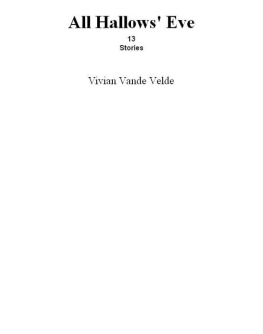


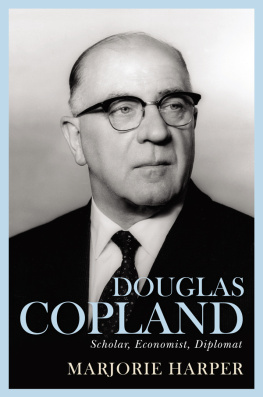
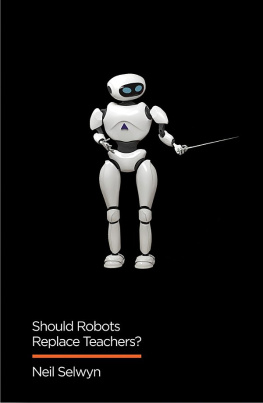
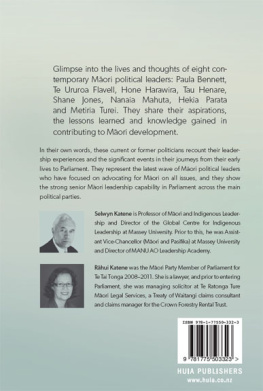
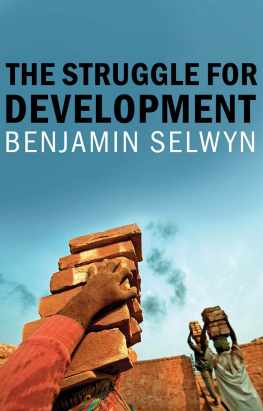
![Oldroyd Jennifer - Applying the 7 laws of spiritual success: [workbook]](/uploads/posts/book/136775/thumbs/oldroyd-jennifer-applying-the-7-laws-of-spiritual.jpg)
